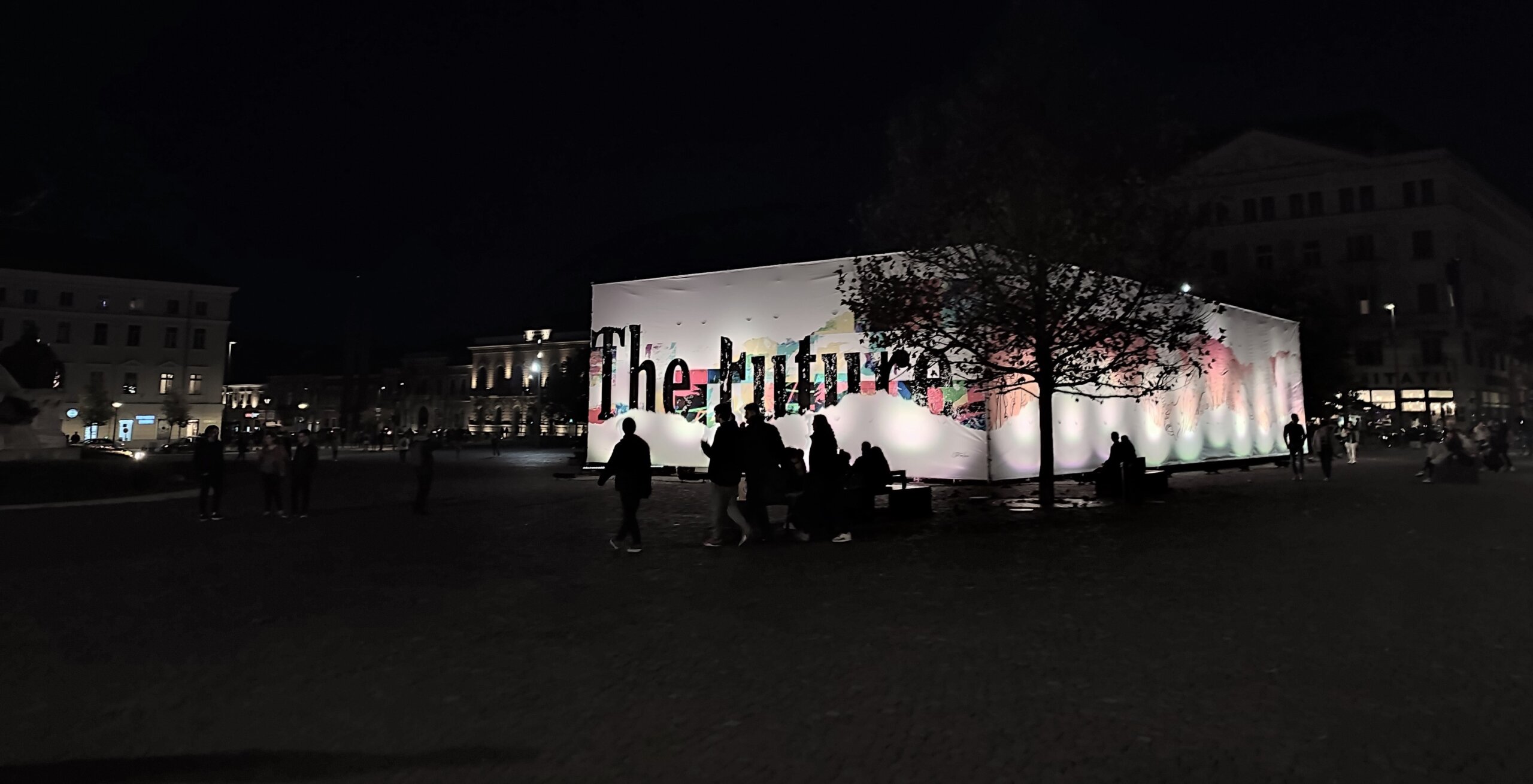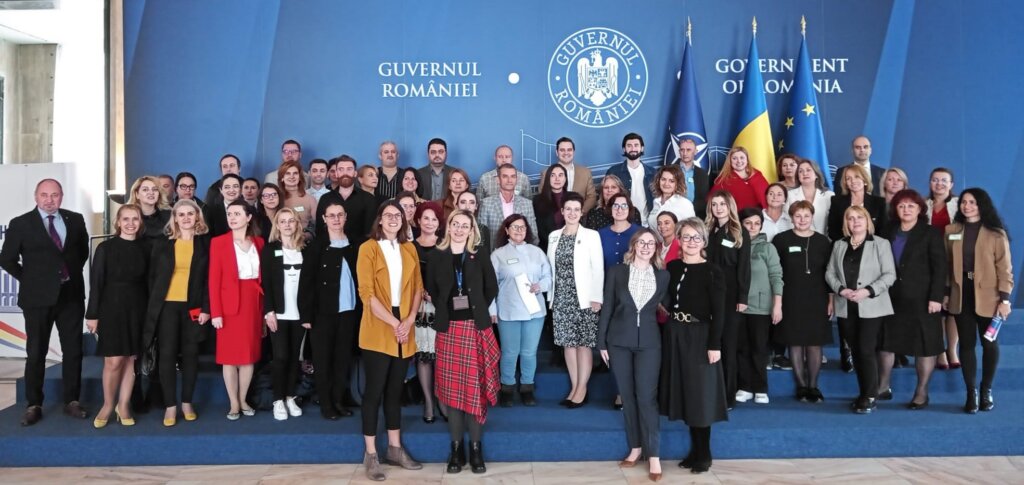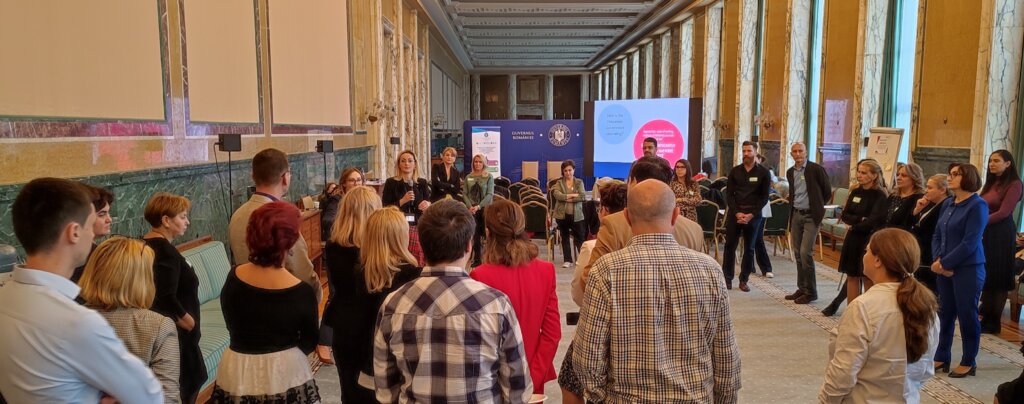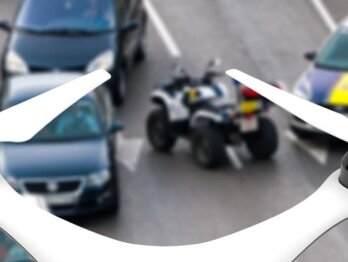From Sporadic to Systemic: Shaping an innovative present & future Romania

Romania’s Recovery and Resilience Plan (RRP) boasts of ambitious goals, including digitalisation of the public administration, adding 90,000 jobs to the economy, investing in modern hospital infrastructure, developing zero-emissions railway infrastructure, making public transport safer and greener, strengthening policy co-ordination and improving human resources capacity in the civil service. This comes at a time when Romania is struggling to improve healthcare outcomes, combat some of the highest rates of emigration in the EU and deal with the rising cost of living.
These challenges, paired with increased funding, resources and ambitions emerging from the RRP, mark a key opportunity for the Government of Romania to radically transform how it operates and tackles major challenges. It is an opportunity for Romania to shine at the EU and global levels and become a leader and reference case for innovative public governance.
The challenges we face today… are becoming more and more severe. They need responses and solutions, as our citizens are rightly asking for.
President Klaus-Werner Iohannis at the 77th Session of the UNGA
The OECD’s Observatory of Public Sector Innovation, with the financial support of Norway Grants, is working with the General Secretariat of the Government and key stakeholders to shape an innovative future for the Government of Romania, one that is proactive, responsive, builds trust with citizens and delivers a better future for the country. You can read the initial results of this work here.

Romania is already making positive strides using innovation
Workshops and engagement activities with over 250 stakeholders from across the Romanian public sector and beyond have revealed that the Government has already started innovating to deliver better services to citizens. Public servants are defying the norms and behaviours of the system to question the limits of what is possible: an important start to creating the momentum for innovative, agile and impactful government transformation.
Innovation facets: The portfolio of Romania’s innovative efforts
At our most recent workshops, we mapped innovative activities in Romania to the OECD-OPSI innovation facets model which identifies four types of innovation (adaptive, enhancement, anticipatory and mission-oriented innovation) that can help understand and explore the purpose and intent of innovative activities.
In Romania, we’ve seen adaptive innovations and mission-oriented efforts such as pan-governmental task forces working to rapidly respond to the COVID-19 pandemic and the influx of Ukranian refugees as well as cross-cutting working groups in the areas of procurement and e-governance.


We’ve also seen efforts to create more seamless, effective and efficient services through enhancement-oriented innovations including e-signatures, the use of task management apps, teleworking, digital identities, online tax returns, platforms for monitoring risk and corruption and online dashboards for strategic planning. Enhancement-oriented initiatives have engaged citizens and stakeholders in innovative ways to ensure government policies, services and legislation are fit for purpose, user-centred and enable a trusting relationship between citizens and government. This includes using social media to engage youth, co-creation with kids via the Caring for Children initiative, the use of engagement tools such as brainmap.ro to get stakeholder input on strategies (e.g. 2022-2027 Smart Specialization Strategy), and more regular consultation of stakeholders across sectors throughout the development, implementation and evaluation of policies.
We have seen the first glimpses of strategic foresight and anticipatory efforts to explore possibilities and steer towards preferred futures. This includes anticipatory innovation activities in the Ministry of Research, Innovation and Digitalization, which is leveraging strategic foresight to examine the future of research and innovation in Romania. The Recovery and Resilience Plan offers huge opportunities for both mission oriented-innovation and capacity building in the anticipatory innovation space to tackle complex challenges and engage deliberately with future possibilities.
This marks a start of the path towards building an innovative public sector, which to date has largely been paved by champions willing to defy norms, challenge the conventional and widen the understanding of what is possible. Yet efforts have been largely sporadic, or do not stick or achieve the intended outcomes, and many individuals in Romania emphasise that using innovation to achieve outcomes can be difficult within the system.
How, then, do we move from innovation as a sporadic activity towards a public sector that consistently innovates to achieve its goals and deliver more effectively to citizens?
A systemic approach to innovation

In order for Romania to tackle its complex challenges – rising costs of living, public health uncertainties, security challenges, among others – and deliver on its ambitious RRP, the Government needs to build its capacity to work in innovative and more effective ways. The recent Interim Assessment Report, Strengthening the Innovative Capacity of the Government of Romania, showcases key systemic challenges that need to be addressed, including:
- A general risk-aversion and hesitancy to challenge the status quo, even when existing methods and approaches are inefficient and ineffective.
- A lack of consistent communication from leadership demonstrating why using innovative methods, exploration and experimentation are needed to develop more impactful solutions, and how to deal with the potential of additional risks.
- Complex and rigid legal and regulatory frameworks that makes it difficult to understand what is possible within existing laws and regulations.
- A public sector culture where innovation is not expected or incentivised, thus making it difficult for individuals to innovate.
- A systemic lack of innovative supports including explicit supports (e.g. innovation lab, strategy etc.) and embedded supports (e.g. flexibility HR policies, digital frameworks).
- Inability to recruit and retain a diverse workforce with ranging mindsets and skills.
- Greater potential for engagement and collaboration across sectors to capture the vast knowledge of the Romanian workforce (e.g. academia, private sector, civil society organisations).
- The need for better data on what is working and what is not working to help identify opportunities for innovation.
- The need to leverage the momentum and progress of digital transformation to support innovative efforts and vice versa.
The above challenges raise the need for a systemic approach, one that combines explicit supports for innovative activities across the public sector (e.g. innovation lab and strategy with dedicated staff and funding) with an enabling environment that is conducive to innovation (e.g. implicit enablers for innovative activity such as new human resource competency frameworks, funding for experimentation, clarity on laws and regulatory policy, increased data sharing). To make this possible, consistent and explicit funding for innovative activities is crucial, paired with dedicated staff and strong leadership drive that shapes a public service culture that encourages innovation.
Taking an active role in shaping an innovative present & future
Last month, a Festival of Creativity was held alongside the Future of Work Conference in Cluj Napoca. During this event, citizens were invited to imagine the future. Answers included: “uncertain, citizen-defined, fluid, bright, digital, freedom, inclusive, feminist, cognitive, crowdsourced, automated, unlimited and creative”.

These visions for the future showcased the complexity and opportunities of the world and future we are navigating, but it also exemplified the role that each and every one of us plays – be it public servants, citizens, NGO representatives, local administrators or academics – in shaping and defining the present and the future.
If we want the Romanian Government to do better, to serve citizens better, to achieve global recognition for its efforts to tackle climate change, build sustainable infrastructure and modernise healthcare systems, we need to push the limits of the status quo and radically re-think how we “do” government. We need to leverage innovative approaches in a systemic manner and consciously steer towards a better future for Romania. This includes both individual commitments to challenge innovation sceptics, but also leadership and political commitments to shape, transform and better equip the public sector system to meet OECD, EU and global standards and benchmarks on innovation, open government and trust.
This project benefits from a grant in the amount of €3,020,000, offered by Norway within the Program “Local development, poverty reduction and increasing the inclusion of Roma”, financed by the EEA and Norwegian Grants 2014-2021 and administered by the Romanian Social Development Fund. More information about the project and about the Program “Local development, poverty reduction and increasing the inclusion of Roma” can be found on the websites: www.frds.ro and www.eeagrants.ro.











